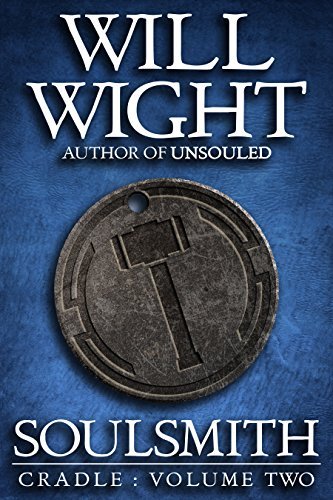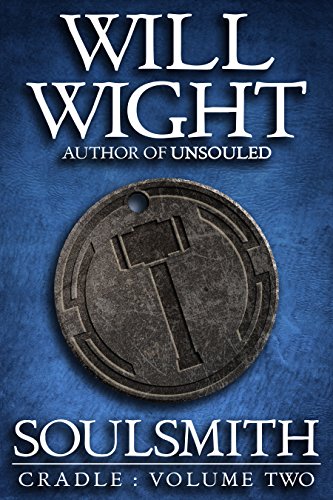Soulsmith Book Review

Soulsmith: Cradle Book 2
by Will Wight
Kindle Edition, 286 pages
Published by Hidden Gnome Publishing (September 26, 2016)
ASIN B01M09PWJQ
I saw a line in another review that I'm going to steal: these books are like candy. I just can't stop reading them. Although I worry the implication of the phrase may be unfair to Wight; while fast and fun reads, the Cradle series has been anything but empty calories.

Ruth Benedict
By World Telegram staff photographer - Library of Congress. New York World-Telegram & Sun Collection. http://hdl.loc.gov/loc.pnp/cph.3c14649, Public Domain, https://commons.wikimedia.org/w/index.php?curid=1276865
In Soulsmith, we pick up right where we left off at the end of Unsouled, Wei Shi Lindon is desperately fleeing the vengeance of the Heaven's Glory School, whom Lindon has robbed blind and shamed by killing one of its highest ranked members. Out in the wilderness beyond the Sacred Valley, adventure awaits. The fun lies in learning about the world at the same time, and mostly in the same way that Lindon does.
While this is fantasy, and thus not really an attempt to present some insight about the world in the context of an adventure story, there are nonetheless interesting elements of the world Wight has built. For the most part, fantasy relies upon historical examples of human societies to provide building blocks which are then reshuffled as needed to create the fantasy world intended without straining credulity too much.
A critical part of the culture of the world of Cradle is shame. I'm using the word in the same sense as Ruth Benedict did in The Chrysanthemum and the Sword.
True shame cultures rely on external sanctions for good behavior, not, as true guilt cultures do, on an internalized conviction of sin. Shame is a reaction to other people’s criticism. A man is shamed either by being openly ridiculed and rejected or by fantasying to himself that he has been made ridiculous. In either case, it is a potent sanction. But it requires an audience or at least a man’s fantasy of an audience. Guilt does not. In a nation where honor means living up to one’s own picture of oneself, a man may suffer from guilt though no man knows of his misdeed and a man’s feeling of guilt may actually be relieved by confessing his sin.
The sacred artists of Cradle live within an honor code of vengeance and shame, like many real-world human societies, both past and present. Justice is mostly of the vigilante variety, with your blood relations the only people you can really trust.
Another building block of the culture of Cradle is the natural hierarchy that results from the ranks of sacred artists. I call it a natural hierarchy because the ranks seem to be natural kinds. There really is something qualitatively different about an Iron artist compared to a Copper, and between all the other ranks as well. Unlike many such theories in our world, whether social, racial, occupational, or what have you, there is an essence of Ironness that underlies the social distinction.
However, those essences are also very meritocratic. Ranks are earned, through hard work and discipline, and above all, through competition. When you put all these things together, a shame culture with a social hierarchy built on real distinctions of ability and power, and the need to compete not only for social distinctions, but for power itself, you get unending war.
This last bit is perhaps the most interesting to me. Lindon's home in the Sacred Valley has the same shame culture as the world outside, but the power levels to be found within are far lower. Perhaps in compensation, it is also a far less brutal place to live. Not only is life easier there, but there are valuable materials and items available there. I'm genuinely curious why someone hasn't rolled in from the wilds outside and taken everything, because it would be easy.
I'm hoping this turns into a plot point later. It would be genuinely interesting to see why the most pleasant place we have seen so far that is also the most undeveloped in terms of sacred arts hasn't been sacked and looted. As for the rest of the world, it must be something very much like Hobbes' state of nature, although we haven't yet been to the Blackflame empire, purported bastion of civilization. I suppose we shall see.
I'm pretty happy I picked up Soulsmith, and I'm looking forward to volume 3.
Unsouled: Cradle Book 1 Review

Soulsmith (Cradle Book 2) By Will Wight

Comments ()